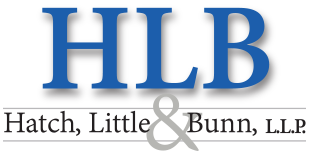Divorce for Business Owners in North Carolina
Raleigh lawyers skilled at equitable distribution of business assets
Business owners face special challenges when they divorce their spouses. The business itself, or at least their ownership interest in it, may be considered marital property. If so, the business assets must be split with the spouse as part of equitable distribution. After 60 years of practicing domestic relations law, Hatch, Little & Bunn, L.L.P. has acquired a wealth of knowledge and skill on this issue that we will bring to bear in working out solutions for you.
How divorce can affect a business
A spouse’s ownership interest in a business he or she started or acquired during a marriage and before the spouses separate is marital property and must be divided up between the spouses during a divorce — even if only one spouse was actively involved in the business. In the case of a sole proprietorship, the entire value of the business may be equitably distributed. A business started or acquired by one spouse before marriage is normally considered that spouse’s separate property. However, if marital assets are transferred to the business, the other spouse is entitled to a share of the value of those assets.
The determination of business assets as marital or separation can be complicated depending on the type of entity involved. For example, a spouse may derive income from a franchise or agency agreement. Even though there is no ownership, valuation of the underlying business might be required for equitable distribution. Professional practices, such medical and legal offices, present special valuation issues. The goodwill attributable to the professional and to the office itself must be allocated and valued separately.
Changes in business value after spouses separate
Equitable distribution must also account for changes in value of a business after the couple separates. If the value is augmented as a result of the activities of one of the spouses, that added value belongs to the spouse who did the work. Any income generated by the business between after separation that was the result of the efforts of either spouse during the marriage but before the separation, such as bonuses and commissions, is subject to equitable distribution.
Activities by one spouse that cause devaluation of the business are subject to enhanced scrutiny by the court in equitable distribution cases. These include efforts to “cook the books” or fraudulently hide or convey part of the business or its property. If one spouse actively causes the business to decline in value, the business is valued as of the time the spouses separated.
How to divide a business in a divorce
If and when the time comes to divide your business’ assets with your spouse in a divorce, there are several ways to do it:
- You can buy out your spouse’s share
- You can co-own the business with your spouse
- You can sell the business and divide the proceeds
It may be possible for you to work out the appropriate method of addressing this issue by an agreement negotiated by your respective counsel.
Serving Raleigh clients for more than 50 years
Hatch, Little & Bunn, L.L.P. has provided comprehensive legal services to individuals and businesses in Raleigh, Durham, Chapel Hill, Research Triangle Park, Wake County and throughout North Carolina for more than half a century. Call 919-899-9827 or contact us online to schedule your consultation at our Raleigh office.


